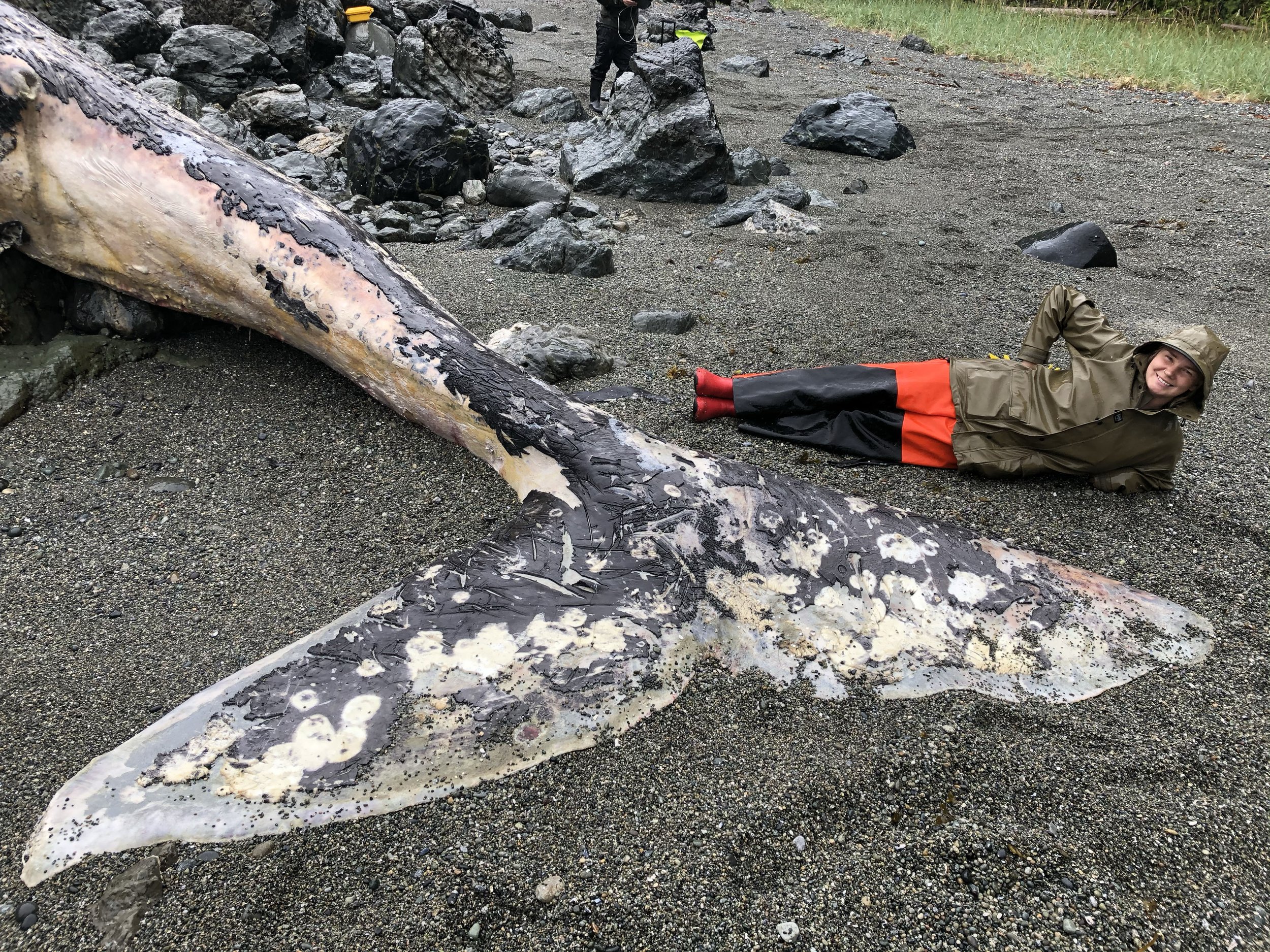The following program was carried out by SIMRS previous to the December 2023 amalgamation. Redd Fish now manages the Marine Mammal Response and Rescue program.
Our Role
For over 30 years, SIMRS responded to numerous marine mammal incidences including entanglements, vessel strikes, and necropsies. Redd Fish is carrying forward this important work and our goals are to provide direct assistance for responding to marine mammal incidents, to conduct research and monitoring of these incidents, and to promote public awareness of threats to marine mammals. As part of the BC Marine Mammal Response Network (BCMMRN) we aim to reduce harmful incidents involving marine animals in our region.
How to help
Please report all marine mammals and sea turtles found entangled, stranded, distressed, or dead to the:
Marine Mammal Incident Reporting Hotline: 1-800-465-4336 (toll-free, open 24 hours a day, 7 days a week)
Use VHF Channel 16 (Coast Guard)
Or email DFO.ORR-ONS.MPO@dfo-mpo.gc.ca
*We also encourage you to report inappropriate or illegal human activity, contamination and disturbances to marine environments.
To ensure the safety of yourself and the animals, please follow these guidelines as you observe and report incidents:
Stay back and do not interfere with the animal
Keep other people and pets at a distance
For large whales and marine mammal incidents call 1-800-465-4336
For the Marine Mammal Rescue Centre call 604-258-SEAL (7325)
*Don't try to help an animal on your own. Marine animal rescues are complicated and each case requires careful planning and response depending on the species involved, geography, weather and available resources. Leave it to trained experts!
Threats to Marine Mammals
Marine mammals play an essential role in the marine environment helping create a balance in the food web and the ocean's ecosystems. Unfortunately, many marine mammals, including large whales and sea lions, are susceptible to both natural and human-caused pressures in the ocean. In fact, over half of the cetaceans and sea turtles in BC waters are listed under the Species at Risk Act (SARA) as Endangered, Threatened or of Special Concern. Both SARA listed species and other marine mammals are subject to a number of threats that affect their welfare and health including entanglements in fishing gear, depletion of prey, acoustic disturbances, strandings, small population sizes, collisions with vessels, climate change, over hunting, plastic and chemical pollution, habitat degradation, and illnesses.
WHAT TO DO IF YOU FIND AN ENTANGLED WHALe
With urgency, report the entanglement with location to the DFO Incident Line / VHF 16 or call 1-800-465-4336
If at all possible, remain with the whale at a distance until trained help arrives or another boat takes over tracking, otherwise the chances of relocating the whale are greatly diminished
Take whatever video/photos are possible but maintain a distance that doesn't stress the whale
Do NOT attempt to remove any fishing gear or rope from the whale as it risks human and whale safety (has led to human death). Professional training and equipment are needed to assess the entanglement and proceed safely with the greatest chance of success. Often, much of the fishing gear in which the whale is entangled is not visible at the surface
Trailing gear at the surface provides the opportunity for trained respondents to attach a tag to track the whale and/or to attach flotation to maintain contact with and slow down an entangled whale. Loss of this gear can significantly reduce rescuers' ability to save the whale
Marine Mammal Regulations
When dealing with marine mammal emergencies please follow all legal Marine Mammal Regulations. For information on the regulations and other marine mammal resources visit the Whale Wise Outreach Toolkit
Want to see more amazing work on this project, and others like it? Support Redd Fish by donating on the link here —>
Are you an organization who would like to partner on this program? Learn more about MMR Partnership options here to support:
Building capacity through training opportunities, particularly with the 5 local Nuučaanuł Nations
Promoting public awareness, conducting research and monitoring any incidents
Providing direct assistance with responses






